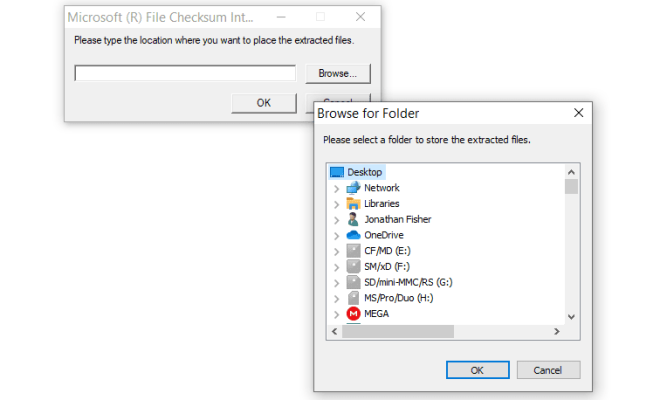How to Download and Install File Checksum Integrity Verifier (FCIV) 1

File Checksum Integrity Verifier (FCIV) is a tool developed by Microsoft for verifying the integrity of files. It is a free and simple-to-use command-line utility that can be used to calculate and compare MD5 or SHA1 hashes for files to ensure that they have not been tampered with.
In this article, we will guide you through the steps to download and install FCIV on your Windows PC.
Step 1: Download FCIV
To download FCIV, visit the Microsoft Download Center and search for FCIV. Then, click on the “Download” button to initiate the download process.
Step 2: Extract the FCIV archive
After the download is complete, extract the FCIV archive to a folder of your choice. To do this, right-click on the downloaded file and select “Extract All” from the context menu. Choose a location where you would like to extract the files and click on the “Extract” button.
Step 3: Open a Command Prompt window
To start using FCIV, you need to open a Command Prompt window. Press the “Windows” key + “R” to open the Run dialog box, type “cmd” and press Enter. Alternatively, you can search for ”Command Prompt” in the Windows Start menu and open it from there.
Step 4: Navigate to the FCIV folder
In the Command Prompt window, navigate to the folder where you extracted FCIV. To do this, type “cd ” and hit Enter. Replace “” with the correct path to the folder where you extracted FCIV.
Step 5: Verify a file’s checksum
To verify a file’s checksum using FCIV, type “fciv -v ” and hit Enter. Replace “” with the name of the file you want to check. FCIV will then calculate the hash value of the file and compare it to the one stored in the checksum file. If the hash values match, FCIV will return a “verified” message. If they don’t match, it will return a “failed” message.
Step 6: Generate checksums for files
You can also use FCIV to generate checksums for files. To do this, type “fciv -add ” and hit Enter. This will calculate the MD5 or SHA1 hash value of the file and store it in a checksum file with the same name as the original file, but with a “.md5” or “.sha1” extension.
In conclusion, using File Checksum Integrity Verifier (FCIV) is a great way to ensure that your files have not been tampered with. By following the steps outlined in this article, you should be able to download, install and use FCIV on your Windows PC with ease.





